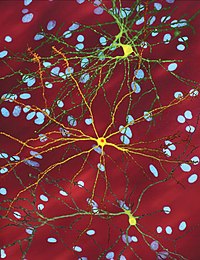
Photo from wikipedia
Disease radically changes the life of many people and satisfies formal criteria for being a transformative experience. According to the influential philosophy of Paul, transformative experiences undermine traditional criteria for… Click to show full abstract
Disease radically changes the life of many people and satisfies formal criteria for being a transformative experience. According to the influential philosophy of Paul, transformative experiences undermine traditional criteria for rational decision-making. Thus, the transformative experience of disease can challenge basic principles and rules in medical ethics, such as patient autonomy and informed consent. This article applies Paul’s theory of transformative experience and its expansion by Carel and Kidd to investigate the implications for medical ethics. It leads to the very uncomfortable conclusion that disease involves transformative experiences in ways that can reduce people’s rational decision-making ability and undermine the basic principle of respect for autonomy and the moral rule of informed consent. While such cases are limited, they are crucial for medical ethics and health policy and deserve more attention and further scrutiny.
Journal Title: Journal of Medical Ethics
Year Published: 2023
Link to full text (if available)
Share on Social Media: Sign Up to like & get
recommendations!